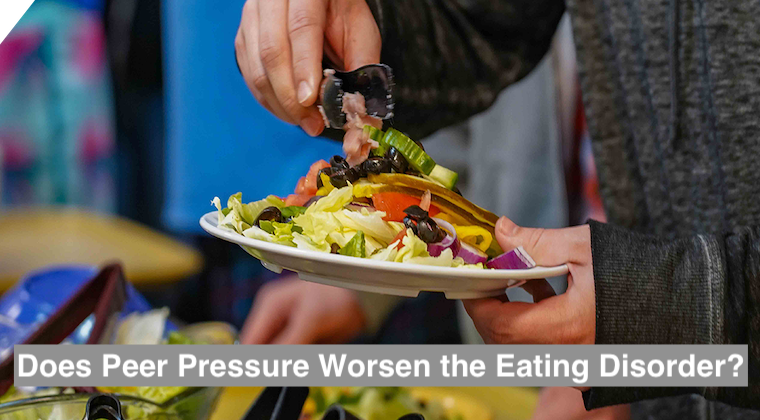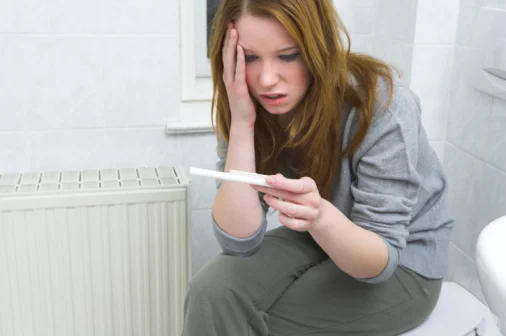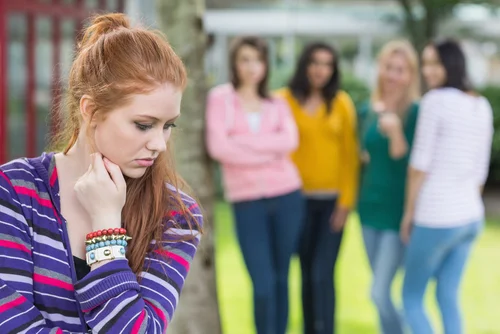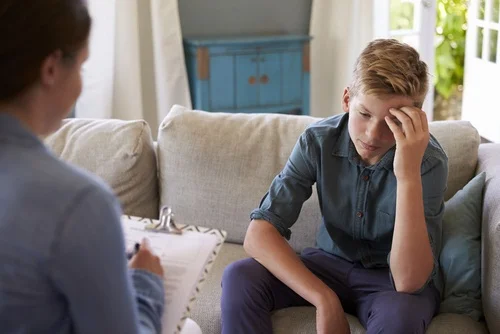+1 845 259 2974 (11 a.m to 7 p.m CST)
Does Peer Pressure Worsen the Eating Disorder?

Eating disorders are complex mental health conditions that significantly impact an individual's physical and emotional well-being. These disorders, including anorexia nervosa, bulimia nervosa, and binge eating disorder, often stem from a combination of genetic, psychological, and environmental factors. While these factors are well-recognized, the influence of peer pressure as a contributing element cannot be overlooked.
Peer pressure, the influence exerted by a peer group on an individual to conform to certain behaviors, attitudes, or values, can play a significant role in the development and exacerbation of eating disorders.
Understanding Eating Disorders
Eating disorders encompass a range of conditions characterized by abnormal eating habits and an intense preoccupation with body weight or shape. Anorexia nervosa involves severe food restriction and an irrational fear of gaining weight, leading to dangerous weight loss. Bulimia nervosa is characterized by cycles of binge eating followed by purging through vomiting or excessive exercise. Binge eating disorder involves episodes of uncontrollable overeating without purging behaviors.
These disorders are more than just unhealthy eating habits; they are severe mental health conditions with profound physical and psychological consequences. Individuals with eating disorders often experience malnutrition, electrolyte imbalances, and organ damage, which can be life-threatening. Moreover, the psychological impact includes anxiety, depression, low self-esteem, and a distorted body image, further complicating recovery.
The Role of Peer Pressure
Peer pressure is a social phenomenon where individuals feel compelled to conform to the behaviors, attitudes, or expectations of their peers. This pressure can be direct, such as friends encouraging unhealthy dieting practices, or indirect, such as feeling the need to match the appearance or behaviors of others in social groups. Peer pressure can also manifest through social media, where individuals are exposed to unrealistic body standards and trends.
In various settings, such as schools, social circles, and online platforms, peer pressure can significantly impact an individual's self-perception and behaviors. Adolescents and young adults are particularly vulnerable to peer pressure as they navigate social relationships and seek acceptance. This period of life often coincides with the development of body image concerns, making them susceptible to the influence of their peers.
The Connection Between Peer Pressure and Eating Disorders
The connection between peer pressure and eating disorders lies in the way social norms and expectations influence body image and eating habits. Society often glorifies thinness and promotes unrealistic beauty standards, leading individuals to believe that their worth is tied to their appearance. Peer groups reinforce these societal norms, either directly or indirectly, creating an environment where unhealthy behaviors, such as extreme dieting or overexercising, are normalized.
Research has shown that peer pressure can trigger the onset of eating disorders in susceptible individuals. For example, studies have found that adolescents who experience pressure from peers to lose weight are more likely to develop disordered eating behaviors. Additionally, social groups that engage in dieting or body-shaming behaviors can contribute to the development of unhealthy eating patterns.
Psychological Impact of Peer Pressure
The psychological impact of peer pressure on individuals with or at risk of developing eating disorders is profound. Peer pressure often leads to low self-esteem and body dissatisfaction, both of which are critical factors in the development and maintenance of eating disorders. When individuals feel that they do not meet the standards set by their peers, they may experience feelings of inadequacy and self-loathing.
Anxiety and depression are also common among individuals who face peer pressure related to their appearance or eating habits. The constant fear of judgment or rejection by peers can exacerbate these mental health issues, creating a vicious cycle where negative emotions fuel disordered eating behaviors. For some, the pressure to conform to societal and peer expectations becomes overwhelming, leading to a deepening of their eating disorder.
The Influence of Social Media
In today's digital age, social media plays a significant role in shaping body image and eating behaviors. Platforms like Instagram, TikTok, and Snapchat are filled with images and videos promoting idealized body types, often edited or filtered to create an unrealistic standard of beauty. Influencers and celebrities frequently endorse diet products, workout routines, and lifestyle choices that can contribute to disordered eating behaviors.
The pressure to conform to these online trends and achieve a "perfect" body can be intense, particularly for young people who are already vulnerable to peer pressure. Social media amplifies the reach of peer influence, exposing individuals to a constant stream of images and messages that promote unhealthy eating habits. Unlike in-person peer pressure, online pressure is pervasive and can be difficult to escape, making it a significant factor in the worsening of eating disorders.
Prevention and Intervention
Addressing the impact of peer pressure on eating disorders requires a multi-faceted approach. Prevention and intervention strategies should focus on creating supportive environments where individuals feel valued for more than just their appearance. Education plays a crucial role in helping young people understand the dangers of peer pressure and the importance of maintaining a healthy relationship with food and body image.
Early intervention is key to preventing the worsening of eating disorders. Recognizing the signs of peer pressure and disordered eating behaviors and seeking help from professionals, such as therapists or nutritionists, can make a significant difference in recovery outcomes. Support networks, including friends, family, and support groups, provide essential emotional and practical support during the recovery process.
Peer pressure is a powerful force that can significantly worsen eating disorders. The pressure to conform to societal and peer expectations regarding body image and eating habits can lead to the development of disordered behaviors and exacerbate existing conditions. The psychological impact of peer pressure, coupled with the influence of social media, creates a challenging environment for individuals at risk of or suffering from eating disorders.
To combat the harmful effects of peer pressure, it is essential to create supportive environments, promote positive body image, and encourage early intervention. By raising awareness and providing the necessary support, we can help individuals resist the pressures that contribute to eating disorders and support their journey toward recovery.





















